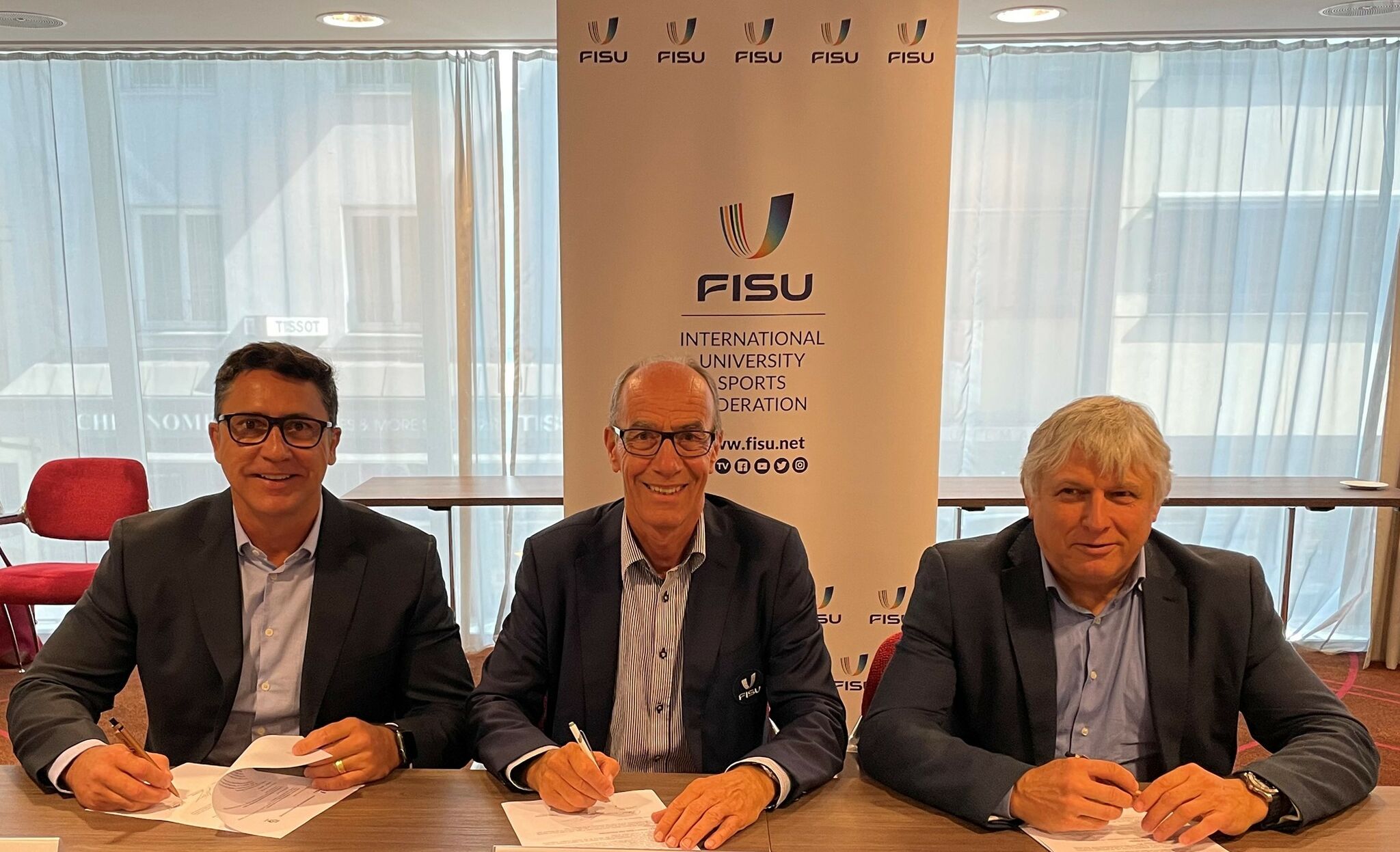 Left to right: Luciano Cabral (President of CBDU, Brazil and FISU Acting First Vice President), Leonz Eder (FISU Acting President) and Eric Saintrond (FISU CEO-Secretary General)Ahead of the Lucerne 2021 Winter Universiade, Heads of Delegations (HoD) are visiting Central Switzerland for a glimpse of what to expect for athletes and delegations at the Games this December. During the HoD meeting in Lucerne, FISU signed a memorandum of understanding (MoU) with the member associations of Brazil and the Russian Federation.
Left to right: Luciano Cabral (President of CBDU, Brazil and FISU Acting First Vice President), Leonz Eder (FISU Acting President) and Eric Saintrond (FISU CEO-Secretary General)Ahead of the Lucerne 2021 Winter Universiade, Heads of Delegations (HoD) are visiting Central Switzerland for a glimpse of what to expect for athletes and delegations at the Games this December. During the HoD meeting in Lucerne, FISU signed a memorandum of understanding (MoU) with the member associations of Brazil and the Russian Federation.
The main objective of the MoU is to promote the FISU Healthy Campus programme to each National University Sports Federations (NUSFs). FISU commits itself to promoting and communicating NUSF activities related to the programme, develop training sessions for NUSF staff, offer a 50% fee discount to each university registered for the second year of each Healthy Campus programme cycle, and grant them with a financial support to promote and communicate their activities within the programme. From the NUSF side, the objective is to promote the programme, evolving higher education institutions and relevant educational and sport stakeholders at national levels.
FISU and its member associations will meet at least once a year, virtually or during a FISU event, to define the activity plan, objectives to be achieved, and to assess an auto-evaluation.
Besides Brazil and the Russian Federation, the member associations from Estonia, Switzerland and Italy have already signed MoU with FISU, and the first contact is being made with the 29 other countries that already have registered universities in the FISU Healthy Campus programme.
The FISU Healthy Campus programme, which is following the Sustainable Development Goals 2030 established by the United Nations, was launched in 2020 and now counts 75 universities registered from 29 different countries. The main goals are to improve health and well-being of students and campus communities, share best practices between all universities, and certify universities in the scope of well-being with an international label.